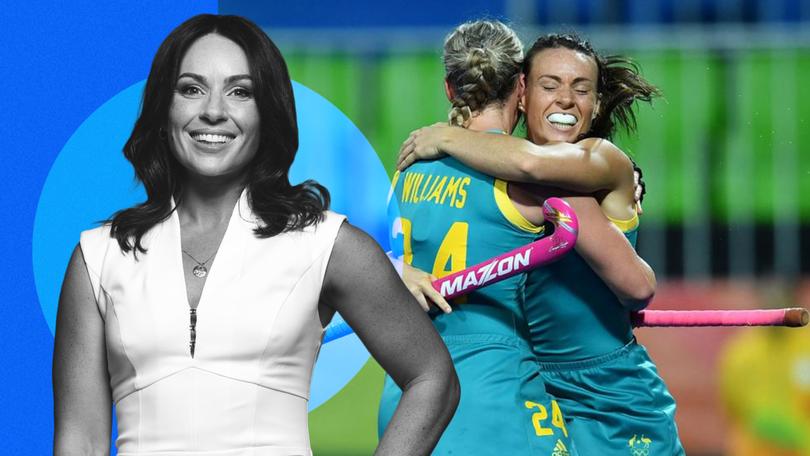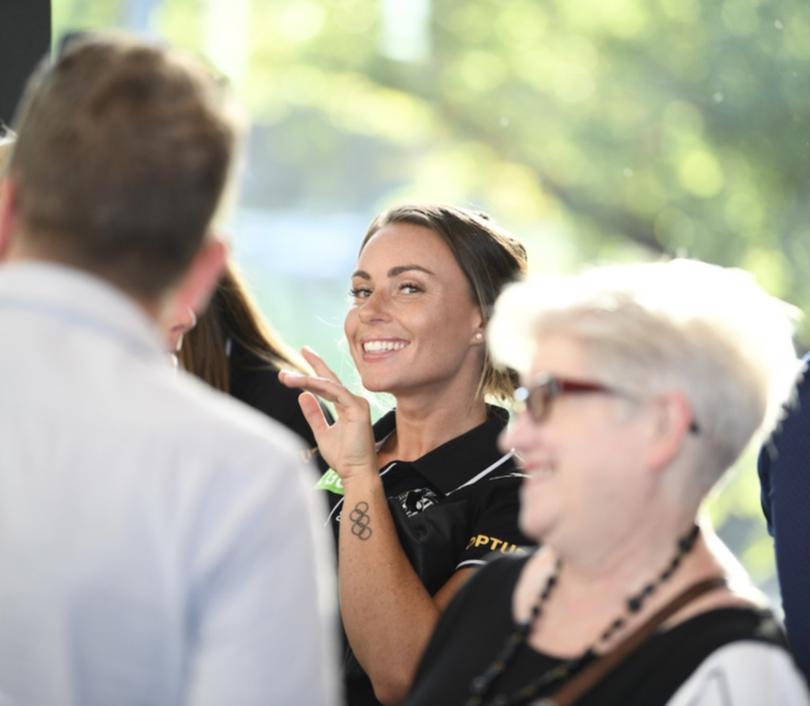GEORGIE PARKER: Not all Olympic athletes have a fairy tale finish like Jess or Noemi Fox
GEORGIE PARKER: For every feel-good Olympic story there are a hundred more of heartbreak and disappointment. I am still coming to terms with the Hockeyroos falling short in 2016.

We are a little over a week since the Paris Olympics finished and I don’t know about you but I don’t quite know what to do with myself.
There is now nothing worth staying up to 3am to watch. Two weeks of intense passion has dissipated in an instant.
Now, imagine that feeling as an athlete. It’s a cliff’s edge that nothing can prepare you for.
Sign up to The Nightly's newsletters.
Get the first look at the digital newspaper, curated daily stories and breaking headlines delivered to your inbox.
By continuing you agree to our Terms and Privacy Policy.Being an Olympian is the dream for all athletes.
You could be a young kid who quickly falls in love with a sport, or you get hand-selected as a teenager because you have long levers and great endurance, but, however you get there, it’s a dream which takes years, sometimes decades, to realise.
It’s a journey of untold physical and emotional pain dotted with countless sacrifices.
You lose your teenage years and early adulthood, but then it happens and it all seems worth it, because you’re there.
But that’s the thing. It’s there until it isn’t, and it’s a dream until it’s over. And, like our dreams while we slumber, the ending sometimes doesn’t make sense and you wake up feeling confused and frustrated.
Being on the other side of the Olympics is a strange feeling.
No matter what your result is it’s quite similar for all athletes. This experience which has been built up for years, suddenly comes to a complete halt and then we all get asked the big question, now what?
For years you’re told what to eat, how much to sleep, what to wear, and it all stops and you feel lost.

Simone Biles, the greatest gymnast of all time, posted on X, “You guys really gotta stop asking athletes what’s next after they win a medal at the Olympics … Let us soak up the moment we’ve worked out whole lives for”.
Hundreds of athletes who had fronted seemingly endless media interviews answering similar questions would be in whole-hearted agreement.
When you win a medal at least you have something to show for the years of work. Most don’t.
While we obviously all love the success stories of the Games, a majority of athletes don’t share this story.
For every Jess and Noemi Fox, there are dozens of athletes going through heartbreak and pain who end up feeling lost. Four years of hard work with nothing to show.
I went to the 2016 Olympic Games where we fell well short of where we wanted to be. It made me have a really weird, bittersweet relationship with the Games.
Eight years on and I am still grappling with this.
On one hand I am proud of my achievements, on the other I am embarrassed about my performance.
The look people give you when you say you didn’t win a medal, particularly one you think you could have won, is a look of pity.
The quick response back of “Oh, but you went and that’s an achievement in itself” doesn’t help.
Of course I know they genuinely believe this, and so should I, but it still hurts every time you have to mutter the words, “No, I didn’t win a medal.”
My relationship with the Olympics is so complex I’m getting my Olympic rings tattoo removed.
I don’t want to have to explain to a person I don’t know, who I know only means well, that I am a failure — because even though I know that’s a dramatic response, that’s what it feels like every time I have to talk about it.
So while we all go back to regular programming with the AFL and NRL dominating the news cycle, let’s try and remember how much joy these, mostly athletes we don’t know, gave us.
Let’s support them more than two weeks every four years, then maybe the pressure won’t be so immense, the cliff won’t feel so big, and the athlete won’t feel so alone.
And while we’re at it, let’s get around the Paralympics like we do the Olympics. Sport is sport after all.
